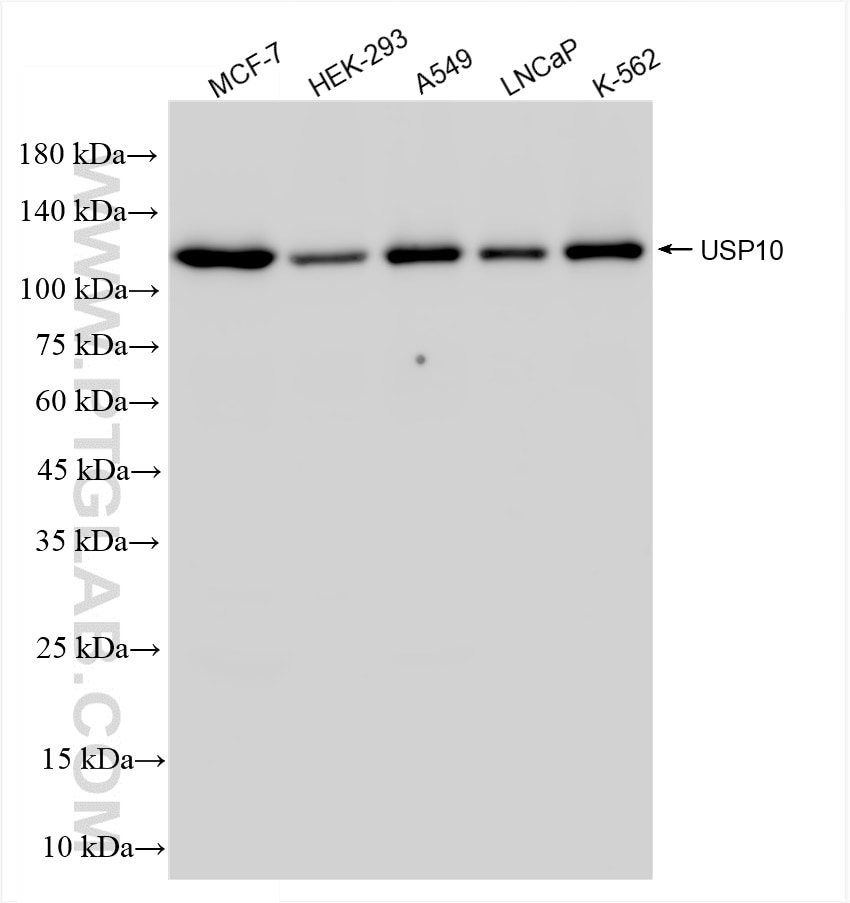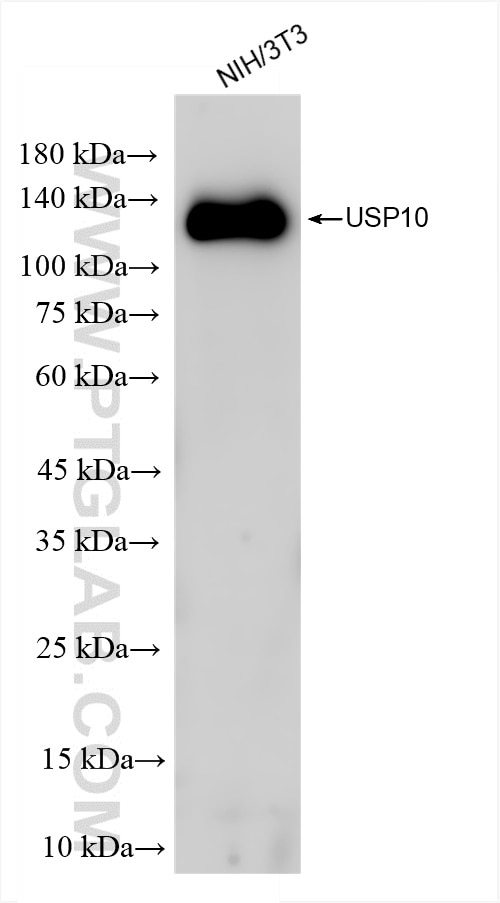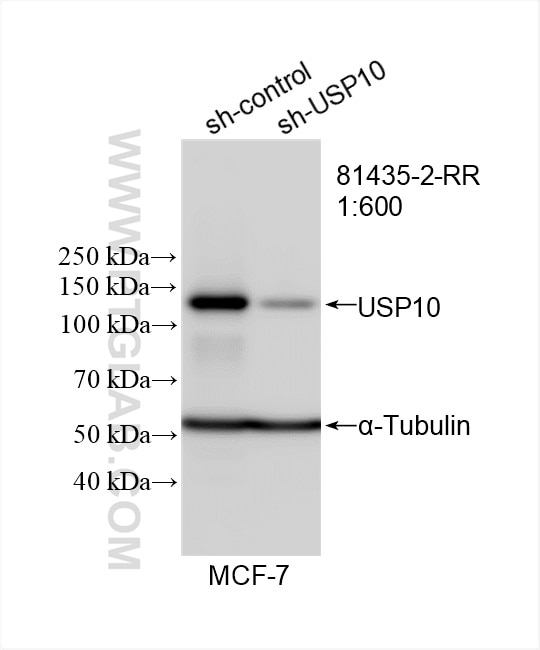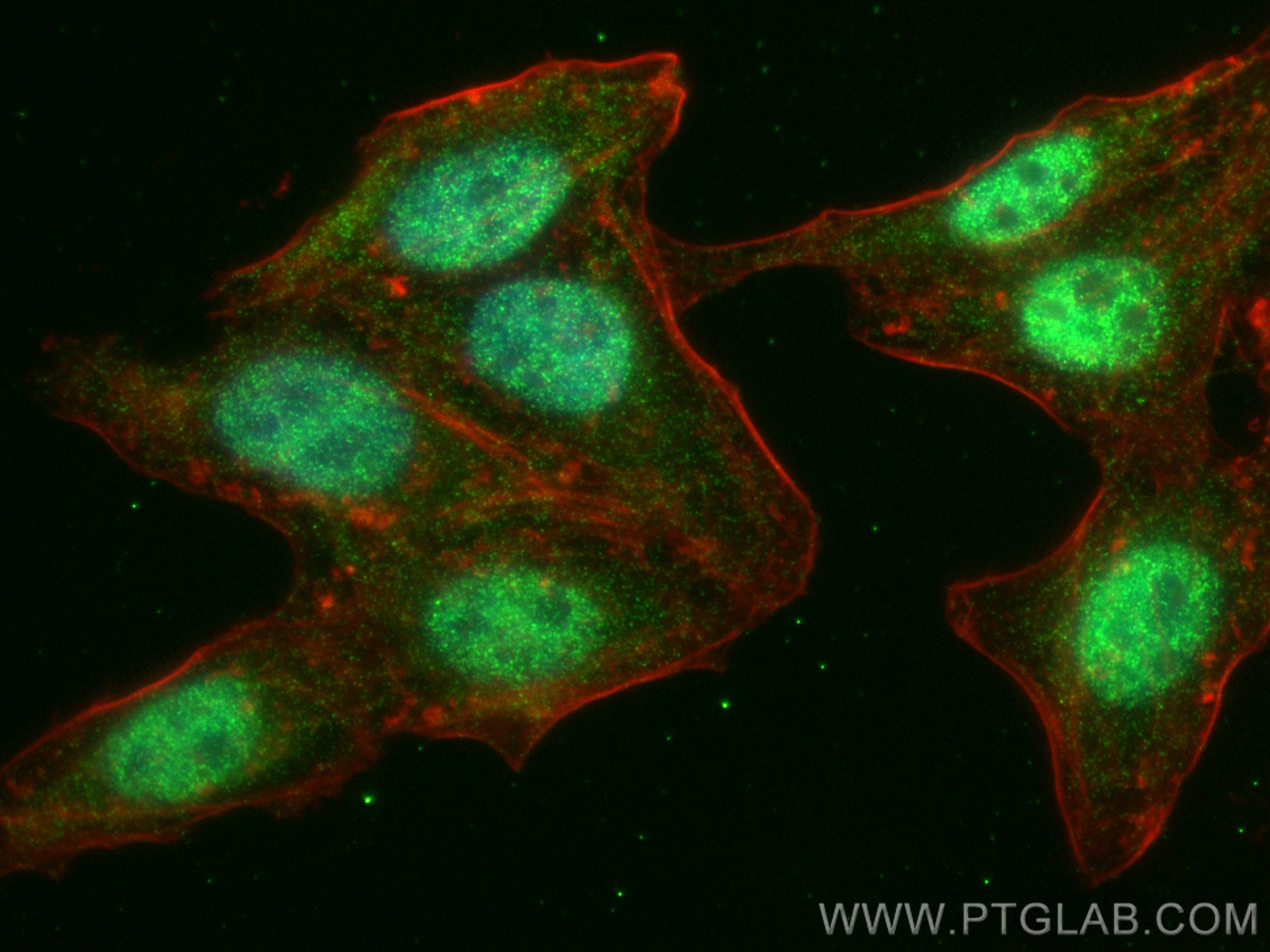- Featured Product
- KD/KO Validated
USP10 Rekombinanter Antikörper
USP10 Rekombinant Antikörper für WB, IF/ICC, ELISA
Wirt / Isotyp
Kaninchen / IgG
Getestete Reaktivität
human, Maus
Anwendung
WB, IF/ICC, ELISA
Konjugation
Unkonjugiert
CloneNo.
240583G6
Kat-Nr. : 81435-2-RR
Synonyme
Geprüfte Anwendungen
| Erfolgreiche Detektion in WB | MCF-7-Zellen, A549-Zellen, HEK-293-Zellen, K-562-Zellen, LNCaP-Zellen, NIH/3T3-Zellen |
| Erfolgreiche Detektion in IF/ICC | HepG2-Zellen |
Empfohlene Verdünnung
| Anwendung | Verdünnung |
|---|---|
| Western Blot (WB) | WB : 1:1000-1:5000 |
| Immunfluoreszenz (IF)/ICC | IF/ICC : 1:50-1:500 |
| It is recommended that this reagent should be titrated in each testing system to obtain optimal results. | |
| Sample-dependent, check data in validation data gallery | |
Produktinformation
81435-2-RR bindet in WB, IF/ICC, ELISA USP10 und zeigt Reaktivität mit human, Maus
| Getestete Reaktivität | human, Maus |
| Wirt / Isotyp | Kaninchen / IgG |
| Klonalität | Rekombinant |
| Typ | Antikörper |
| Immunogen | USP10 fusion protein Ag7233 |
| Vollständiger Name | ubiquitin specific peptidase 10 |
| Berechnetes Molekulargewicht | 87 kDa, 92 kDa |
| Beobachtetes Molekulargewicht | 100-130 kDa |
| GenBank-Zugangsnummer | BC000263 |
| Gene symbol | USP10 |
| Gene ID (NCBI) | 9100 |
| Konjugation | Unkonjugiert |
| Form | Liquid |
| Reinigungsmethode | Protein A purfication |
| Lagerungspuffer | PBS with 0.02% sodium azide and 50% glycerol |
| Lagerungsbedingungen | Bei -20°C lagern. Nach dem Versand ein Jahr lang stabil Aliquotieren ist bei -20oC Lagerung nicht notwendig. 20ul Größen enthalten 0,1% BSA. |
Hintergrundinformationen
USP10, also named as USP32 and NY-REN-60, belongs to the peptidase C19 family.The deubiquitinating protease USP10 has been identified as a new regulator of p53 in the DNA damage response and tumor development.
Protokolle
| PRODUKTSPEZIFISCHE PROTOKOLLE | |
|---|---|
| WB protocol for USP10 antibody 81435-2-RR | Protokoll herunterladen |
| IF protocol for USP10 antibody 81435-2-RR | Protokoll herunterladen |
| STANDARD-PROTOKOLLE | |
|---|---|
| Klicken Sie hier, um unsere Standardprotokolle anzuzeigen |





